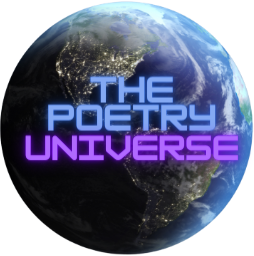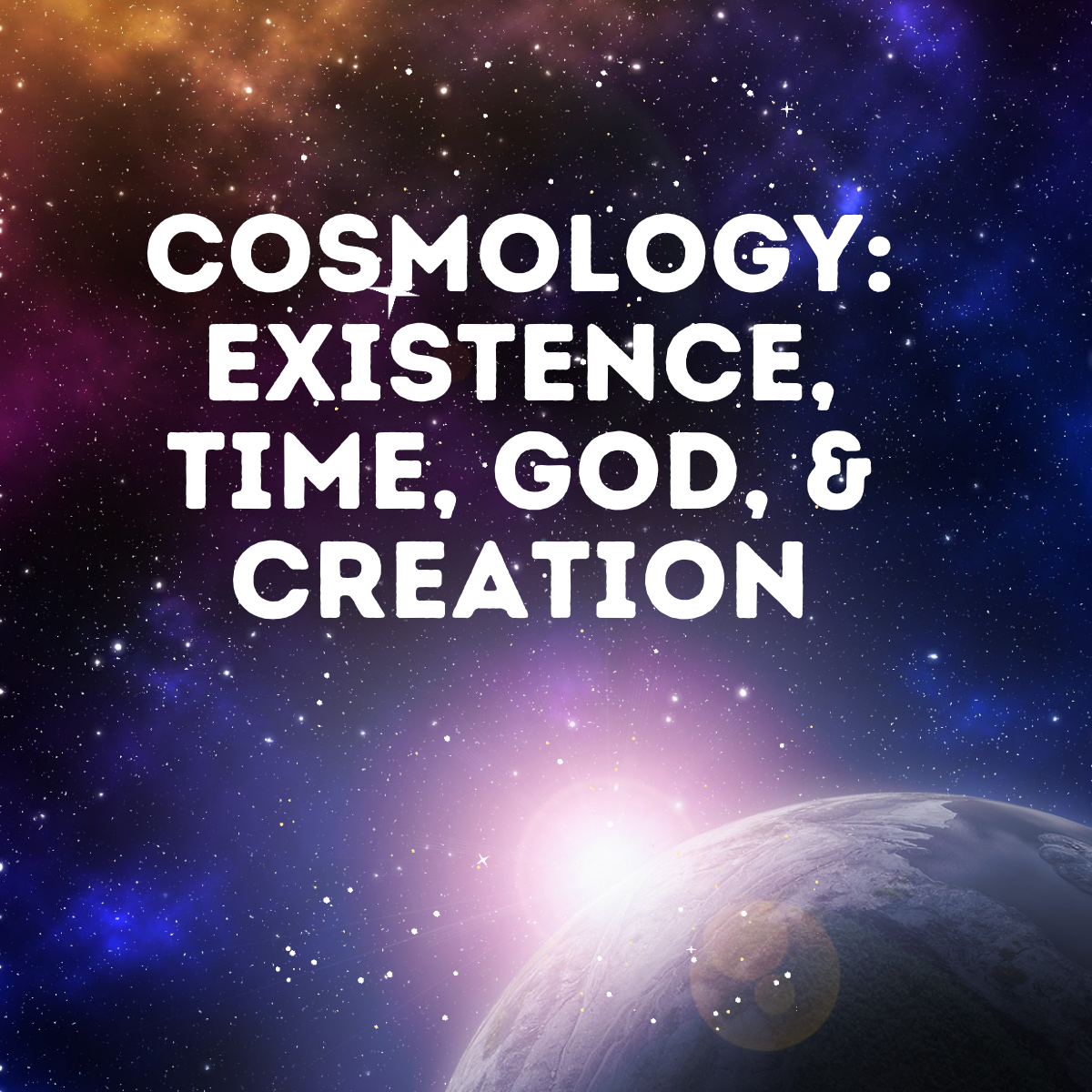- A Brief History of Moral Development Theories
- A Psychological Profile of Dr. Martin Luther King Jr.
- Moving Towards a General Theory of Intelligence
- Cosmology: Existence, Time, God, Creation
- Introduction
What does it mean to exist?
Does time exist or did we just make up this concept to explain change?
Where in time are you?
Where in tme does God exist?
Was the world created or did it require creation?
Did God or another creator design the world?
If you’ve ever asked or even wondered about these questions, you ventured into the domain of Cosmological thought or speculative philosophy. Cosmology is a branch of metaphysical philosophy that tackles subjects related to the origins of the universe and its elements.
Much of my poetry straddles the fence between philosophy and poetry and a collection of my poems was once referred to as a “poetic cosmology”. My poems “The Truth Outside of Time“ and “Prime Numbers for example, tackle these speculative cosmological topics in a visual poetry domain. Therein as well as within some of my other writing, I put an artistic and esoteric spin on topics such as existence, time, God, creation and where these subjects intersect.
Whether you are a follower of a religious faith or not, you’ve probably asked yourself or maybe even speculated on the role and limits of time within our universe.
Time has been a topic of discussion for many centuries and yet it is still not completely understood. While we do operate within the constraints of our understanding of time, many people don’t realize that time relates to changes in states of matter and thus it relates to changes of “being”.
For time to exist as a concept, the first assumption is that things within our known world can change. If things don’t change their states or position in space (from here to there), time is not only unnecessary, but it would not exist as a known concept. Time requires change to even exist.
But then the question becomes “Is it possible to exist beyond the constraints of or even to exist without time?”
This 2nd question brings in the equally speculative question “What does it mean to exist or what does it mean “to be”? Philosophers have speculated and argued for centuries over whether there is a “perfect state” of being where nothing changes and whether being in such a state of perfection could possibly represent a utopia or heaven-like existence not subject to aging or death. The first noteworthy reference to a “timeless” or “ageless” state appears in Plato’s The Republic”(1) and then later and more explicitly in his “Timaeus” dialogue(2). In these works, the characters speculate on the existence of 3 levels of divine beings or entities above humans. The first level is referred to as “the creator” who is the overall designer of the universe. The 2nd level is what would be more analogous to our general understanding on a divine, omnipotent being (i.e., God of Abraham) This 2nd level deity then has dominion over lesser Gods such as the ones of Greek mythology widely known and revered during Plato’s time. All such God’s either existed outside of human time or else were thought to shuttle back and forth within time.
Obviously, we will never have an answer in our known existence to such speculative God concepts because, as humans, we are always subject to changes in time and space so we can’t really empirically test any way of being outside of time.
So… what does it really mean to exist or to be without time?
To answer this, we first need to emphasize that “to be” is in the present tense of our language and that is actually the key to our understanding of this concept. Let’s try to imagine that time doesn’t exist or that we remain frozen in our current state for infinity. There is no shifting of thoughts or of desires because such would break the laws of the unmoving, perfect state. This is the postulated state where the aforementioned “creator” of Plato would exist.
However, Plato’s Timaeus theorized the creation of the consequent God has somewhat of a logic flaw in that the premise that the Creator “desired” a subordinate God breaks the law of the Creator’s “perfect state” as desire assumes at least 2 states (that of stasis or “un-desire” and that of the objective or “desired state) and the change therein. If the Creator can change his state of being, then it follows that the Creator can move within time and states of being thereby possibly negating Plato’s consequent God theory.
In any case, by raising the concept of a God that exists out of time, whether a primary level Creator God that doesn’t require “becoming” or a subordinate God that was created and has dominion over creation, Plato founded a critical albeit speculative theory on the omnipotent being existing somewhere outside the bounds of time, human reason and perception.
But then let’s add another aspect to this which actually mirrors our known reality but also raises a more in-depth question. Is time precedent for existence? To put it more plainly, If existence in the infinitive “to be” requires only our current understanding of current time, do changes from current to past or even future states of time yield precedent or consequent forms of existence? Can we simply state that existence is fundamental in that it is both defined as transformed within each moment of time in our world of reason as well as in the absence of a time space concept outside the bounds of our known reality?
To illustrate the first premise, we could use a flipbook with drawings on each page in different poses. If we then flip the pages of the book to create an animation, are we not by default, showing that objects “exist” in each page or point, or millisecond of time? Thus, time, while not necessarily required for existence, is required for our human perception and abstract understanding of existence. An alternate take on this is that we can simply state that there is no actual time but only transformations in states of being/existence.
So…then we need to speculate, as countless philosophers, writers, members of the clergy have throughout the centuries on the constraints of God or a supreme intelligent designer of the universe being able control all aspects of the universe and of our very existence within it. As we know, the things we perceive are subject to change and thus, such things are bound by the constraints of time. Therefore, surely, an omnipotent God would “exist” outside the constraints of time and space otherwise, we can theorize that no God could exhibit control or dominion over the changes within our known universe across infinite periods in our understanding of time.
What is even more interesting if we take this God speculation further is that it would mean 2 things.
As our sight or visual perception per our empirical understanding are functions of moving light waves and sound waves upon our retinas and ear drums, our vision and hearing are also functions of time so we couldn’t really see or hear any God who exists outside the boundaries of time and space.
Thus, we can theorize that any past, present or future sightings of God would mean that God would have to not only exist outside of time in a quasi-stasis state but would also have the capability to come into a effectuated state of change or “become” or “make his presence known” at any point or time within our known time and space as well as with points outside of our time and space. Remember that as humans our knowledge and usage of time is measured with consistent, linear increments and chronology. There are other dimensions of time however that we cannot experience. Such dimensions involve expansion and compression of time and timespans as well as regressive or backward time.
Now, while some of you may be skeptical of such abstract, speculative theories on time, existence, Divine Gods/Creators, you should also be aware that while, such theory is not knowable within our current existence, any theories to the contrary are likewise unprovable. Any premises or arguments that require assumptions on non-empirical (not testable) evidence cannot be proven nor disproven. We can only reach our supported conclusions via inductive reasoning based upon assumptions.
The key to our advocacy of such conclusions relates to our answers to questions such as the ones shown below:
- Do we assume that order exists within a universe filled with movement and change?
- Does our own Earth have a balanced order governing its changes in time and space which have not and are not governed by us or any knowable principles?
- In addition to voluntary drivers, have there been involuntary drivers of human survival and development spanning many centuries?
- Can the occurrence of millions or repetitious mutations across eons of time yield progressive yet unknown sources of order in life forms and in the environment?
If the answer to this question is “yes” to questions 1 to 3 and a “no” to question 4, regardless of any atheist or agnostic arguments to the contrary, we must by induction, conclude that a creator and/or God exists in and out of our time and space. There is simply no explanation of the universe and its properties that can be supported by supporting the existence of a random, chaotic or “absurd” universe.
It is interesting to note that two of the most famous and well-published physicists agreed that there was likely a creator of the universe. Einstein once famously stated that “I’m not an atheist, and I don’t think I can call myself a pantheist… I believe in Spinoza’s God who reveals himself in the orderly harmony of what exists, not in a God who concerns himself with fates and actions of human beings”(3). In this case, Spinoza and Einstein obviously, advocate for the premise of a God existing outside the boundaries of time.
Stephen Hawking, often referred to as an atheist, once also commented on the unlikelihood of the probabilistic model as the sole driver for the creation of the universe with “The odds of a universe like ours emerging from the Big Bang are enormous…I think there are clearly religious implications” (4)
I invite all of you to watch and/or listen to all of my visual poems. Many of these short works include artistic renderings of the aforementioned cosmological topics. Please also leave feedback as I am always interested in how my audio-visual work is perceived.
Thank you.
Works Cited
Plato. The Republic. National Geographic Books, 2007.
Plato. Late Platonic Dialogues Collection. 2023. Translated by Benjamin Jowett, pp. 142–143.
Einstein, Albert. The Ultimate Quotable Einstein. Princeton University Press, 2019.
Livingston, James C. Anatomy of the Sacred: An Introduction to Religion. Pearson, 2009.


